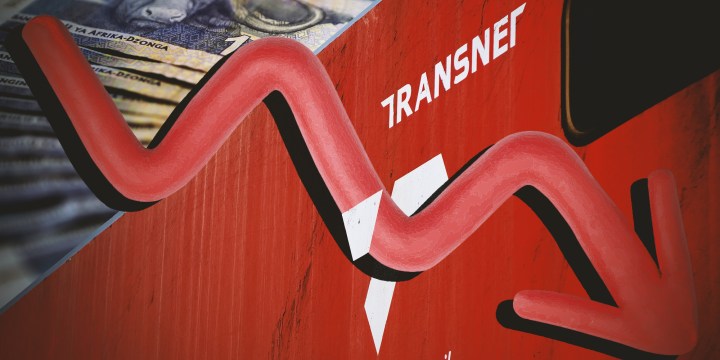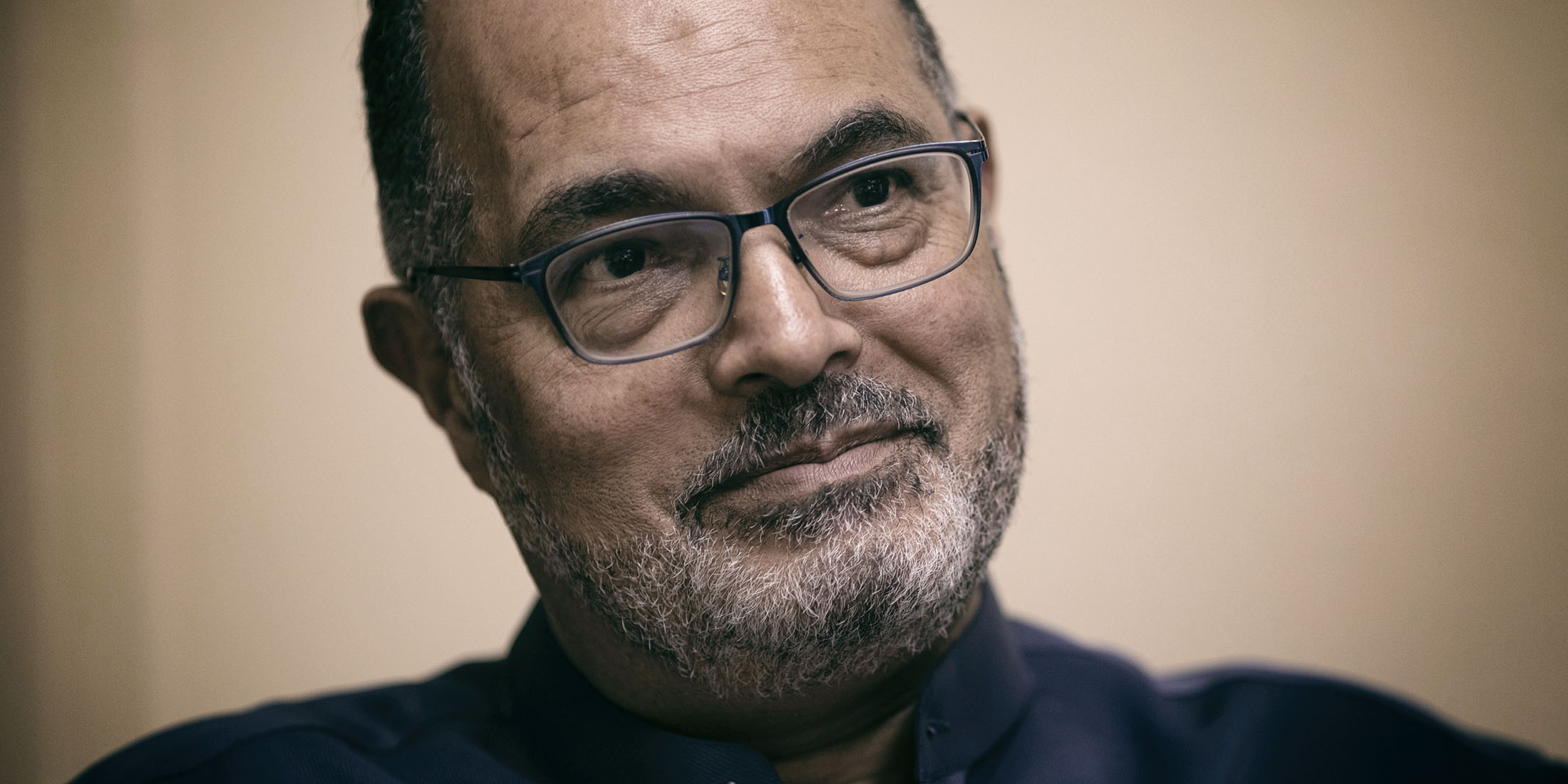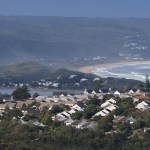REVENUE SHORTFALL
‘Transnet and Eskom’s failures have cost South Africa R200bn’, says Sars boss

Tax boss Edward Kieswetter has explained the reasons for the expected tax revenue shortfall.
One of the key insights from last week’s Medium-Term Budget Policy Statement was an undercollection of revenue. However, as South African Revenue Service (Sars) commissioner Edward Kieswetter points out, the R56.8-billion shortfall related to net and not gross revenue collection, which was just more than R2-trillion for 2022/23.
The two biggest culprits behind the difference between gross and net revenue collected were the nation’s biggest bugbears: rolling blackouts and the underperforming freight rail system.
The reality, Kieswetter points out, is that year-on-year gross revenue collection was up 7%, but net revenue collection contracted significantly on the back of several factors directly linked to rolling blackouts and the failing freight rail system.
Major factors affecting in-year revenue collection in the first half of 2023/24 included significantly reduced mining sector profitability. Provisional corporate tax collections from mining companies plunged 55%, or R24.6-billion, as lower commodity prices, weaker global growth, increased power cuts and logistical constraints weigh heavily on the sector.
However, Kieswetter says that to attribute the entire fall in net revenue collection to the mining sector is “over simplistic”.
Rather, he says, the decline in corporate income tax can be attributed more broadly to increased input costs as a result of inflation and the high capital costs incurred by companies investing in alternative energy solutions to overcome the challenges posed by blackouts.
“The estimated economic impact of the poorly performing freight rail system is R100-billion, and we lost another R100-billion to load shedding through loss of productivity,” he says.
According to the ESP app (formerly EskomSePush), South Africa has had more than 6,000 hours of blackouts this year, almost double the 3,773 hours lost in 2022.
Stronger VAT refunds
The medium-term budget reveals that VAT refund payments were R21.5-billion higher on the back of stronger-than-expected exports, increased investments in embedded generation and higher costs of doing business, including the use of more expensive road rather than rail transport.
The stronger VAT refund payments over the medium term also partially reflect higher renewable energy investments and responses to structural constraints in logistics and fuel refinery capacity.
Here again, Sars played a greater role than it was given credit for in the medium-term budget. Increasing use of artificial intelligence and algorithms helped to prevent the outflow of about R45-billion in refunds across the board.
Sars brought in another R118-billion through what Kieswetter calls “compliance revenue”, or tax revenue collected as a direct result of its administrative actions.
“The compliance revenue alone is R26-billion, or 28% higher than it was last year. Actually, Sars’ efficiency has improved year on year and we have narrowed what would have been a much bigger gap that was produced by load shedding and Transnet,” he says.
Although a sustained recovery in earnings and higher bonus payments benefited personal income tax collections, with employees’ tax from the finance sector driving strong year-to-date growth, the tax-to-GDP ratio is expected to decline to 24.7% in 2023/24 from 25.1% in 2022/23.
The result is that the main budget revenue estimates for 2023/24 have been lowered by R44.4-billion compared with the 2023 Budget, mainly driven by lower estimates for tax revenue.
Despite a projected increase in tax revenues to R2.1-trillion, or 25% of GDP, by 2026/27, revenue collection is now projected to fall short of 2023 Budget estimates by R121-billion between 2024/25 and 2025/26, with tax buoyancies generally lower over the medium term.
Finance minister gets firm with failing SOEs
In the face of all the decreased collections, Finance Minister Enoch Godongwana told Parliament that the most effective ways of funding the government were efficient tax administration and broadening the tax base.
But if the tax administrator has already proved its efficiency by increasing gross revenue collection by more than R1-billion in the face of failing state-owned enterprises such as Eskom and Transnet crippling economic growth, a hard look at those that are failing is needed.
“Sars will continue its focus on enforcing compliance in areas such as debt collection, fraud prevention, curbing illicit trade, voluntary disclosures and encouraging honest taxpayers to comply voluntarily.
“Every additional rand of revenue collected is one rand less that we have to borrow,” Godongwana told Parliament and the country in an echo of what Kieswetter said earlier this year.
To give Godongwana credit, this was not an easy medium-term budget for him, and he has not let the two failing SOEs off lightly. In an about-turn this week, he advised that Eskom’s “interest-free” R254-billion loan would now be converted to an interest-bearing loan.
The Eskom Debt Relief Amendment Bill was tabled this week, providing for Eskom’s payment of interest and a reduction in the amount of debt relief available if it fails to comply with National Treasury conditions.
Eskom posted its biggest loss yet earlier this week, ending up R23.9-billion in the red for the year to the end of March 2023.
Transnet is playing in the same losers’ playground with a loss of R5.7-billion over the same period.
Meanwhile, the Transnet board had produced a “turnaround plan” that would require funding of more than R100-billion from the National Treasury over the next two years.
The financial support package included a request for R47-billion in an equity injection or a loan that can be converted to equity if Transnet demonstrates progress in turning its operations around.
Godongwana did not mince his words when he slapped down this idea in his medium-term budget speech.
“Transnet’s performance… has been underwhelming and its operations have been strained by a worsening financial state,” he said.
He added that financial support could only be discussed once Transnet’s corporate and operational plans reflected clear objectives for enhancing efficiencies, facilitating the introduction of competition and leveraging the financial and technical support of the private sector. DM




















Plaudits to Finance Minister Godongwana. Here’s hoping the new leadership at National Treasury continue to receive political backing and cover.